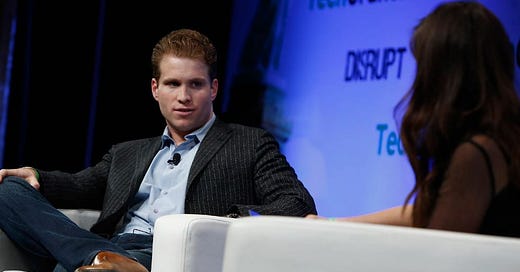When evidence is allowed, Stanford changes its verdict on an Joe Lonsdale Sexual Assault Case
In 2013, Elise Clougherty accused her ex-boyfriend of a year, Joe Lonsdale, of abuse and sexual assault. She reported her allegations to Stanford University, where she was a student and he was her men
In 2013, Elise Clougherty accused her ex-boyfriend of a year, Joe Lonsdale, of abuse and sexual assault. She reported her allegations to Stanford University, where she was a student and he was her mentor. Stanford found Lonsdale responsible for sexual assault and banned him from the campus for 10 years.
In early November 2015, Stanford reversed the ban, citing “new evidence” in the case.
That “new evidence” was apparently emails sent from Clougherty to Lonsdale during their relationship that raised doubts about her accusations. The emails were not included in the original investigation against Lonsdale, and were only brought to the attention of Stanford administrators due to a New York Times article about the case.
Related Story: http://www.washingtonexaminer.com/article/2575923
The author of that article, Emily Bazelon, wrote that as she was conducting her own investigation of the case for her article, she realized the truth was much more muddled than the story Clougherty told Stanford. She scolded Stanford for not obtaining the emails — which predated the school’s investigation — during the process.
“The emails that persuaded Marcia Pope [the school investigator] to change her mind predated Stanford’s inquiries; they should have been part of the investigation all along,” Bazelon wrote. “Lonsdale’s lawyers told me that he offered the emails to Pope back in 2014, when she first investigated Clougherty’s rape claims. Stanford’s spokeswoman initially told me the university couldn’t comment on this, but after an earlier version of this article was published, she said that the lawyers’ claim is ‘completely false.’ In any case, I’m not sure what stopped Lonsdale from just handing the emails over.”
I won’t recount the lengthy saga of Clougherty and Lonsdale. To summarize, two adults dated for about a year, and after a bad breakup one accused the other of sexual assault. Clougherty told her friends she didn’t want to have sex with Lonsdale. Her emails to him tell a different story, but she explains them away as her trying to prove she loved him so he wouldn’t abuse her. Lonsdale’s friends believed Clougherty and her mother were after his money, and her mother sought his help for business ventures and networking.
I encourage you to read the entire story, even though it is lengthy.
It certainly shouldn’t have taken a reporter to uncover emails from Clougherty to Lonsdale saying, “Kiss kiss kiss, you are super handsome,” “You are a sexy man” and “It was so nice sleeping with you.”
Regular readers will know that even if those messages had been included in the initial investigation, there’s no guarantee Lonsdale would have been spared. In numerous other accusations, messages that negate the accuser’s story have been explained away by school administrators.
At Columbia University, friendly and even loving messages between Emma Sulkowicz and Paul Nungesser were explained away with claims that she was only saying those things to open a dialogue about an encounter she had later decided was a rape.
At Vassar College, messages from Peter Yu’s accuser — apologizing for sleeping with him and telling him she had a “wonderful time” — were dismissed as “not correctly reflect[ing] her feelings” because she was in a state of “shock and disbelief.”
Lonsdale still faces punishment for entering into a relationship with his mentee and not disclosing it to the university. Both parties also agreed to settle their corresponding lawsuits, but details have not been disclosed.
Bazelon brings it home with this reminder for current male college students: “Joe Lonsdale had the resources to prevail in getting more from the university. Not everyone does.”



